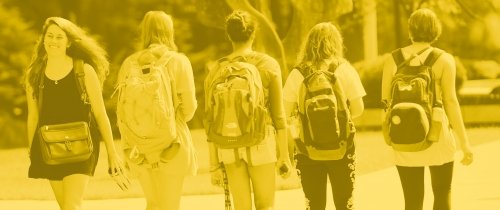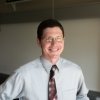Course Descriptions
ANT 371: Ritual, Worldview, & Healing
Case studies from non-industrial societies explore religion through practices related to shamanism, drug use, death/the supernatural, witchcraft/magic, trance/possession, and illness/healing. Classic and modern anthropological theories of religion are examined comparatively and reflexively.
CHE 132: General Chemistry 2
Topics studied include solutions, reaction rates, chemical equilibrium, acid-base reactions, solubility equilibria, thermodynamics, and electrochemistry. Laboratory work is required.
Pre-requisite: CHE 131 with a “C-” or higher
CHE 241: Organic Chemistry 1
The structure, nomenclature, stereochemistry, and reactions of alkanes, alkenes, alkynes, and alkyl halides are studied. The mechanistic pathways of reactions, methods of synthesis, and spectroscopic determination of structure are also discussed. Laboratory work is required.
Pre-requisite: CHE 132 with a “C-” or higher
CLA 212 / LIN 212: Medical Terminology
Approximately 95% of English medical terms are derived from Ancient Greek or Latin. This course develops understanding of medical terminology and the Greek and Roman healing practices in which much of this terminology developed. We will learn spelling, pronunciation, abbreviations, how to analyze words based on roots, prefixes, and suffixes, while investigating ancient Greek and Roman conceptions of health, the body, and medicine.
ENS 110: Introduction to Environmental Studies
A survey of human impacts on our environment, including the ecological bases for, and the ramifications of, these impacts. Includes a consideration of policies that would protect our environment for the long term while incorporating cultural, political and economic realities. A variety of views are discussed, and the policy implications of differing values are considered.
MAT 130: Introduction to Statistics
An investigation of techniques for analyzing data and making inferences about populations. The course includes the study of random variables, descriptive statistics, basic probability theory, and inferential statistics. Specific topics include confidence intervals, hypothesis testing, regression, analysis of categorical data, and analysis of variance.
MUS 116: Foundations and Worldviews of Music
From the foundations of how music is created to the worldviews of all aspects of music in society, this class finds the connections we all have to music. Film, modern, and brilliant music from the past are the basis of this exciting study of the musicians and works that have changed history and impact our lives.
POL 410: LSAT Preparation: Law and your Future
This course provides an initial foundation for preparing your law school application, and for a successful completion of the LSAT exam in particular. We will study each problem section of the LSAT, and analyze many real problems from the test. You will learn which problems you need to practice the most to improve your score, and thus successfully continue your applications to law school. Our Pre-Law Advisor will join the course to work through tips for applying to law school and what to expect in the first semester of law school.
PSY 110: Introduction to Psychological Science
Psychology is a science that uses diverse methods to study how humans behave, think, and interact with the world around them. Through lecture and lab you will learn about yourself and a wide variety of topics, including brain structures, sleep, memory, attention, personalities, stress, child development, and psychological disorders. Emphasis will be placed on the use of critical thinking and the application of psychological principles to everyday events. (This course has a laboratory component.)
PSY 111: Survey of Psychological Science
Psychology is a science that uses diverse methods to study how humans behave, think, and interact with the world around them. Through lecture you will learn about yourself and a wide variety of topics, including brain structures, sleep, memory, attention, personalities, stress, child development, and psychological disorders. Emphasis will be placed on the use of critical thinking and the application of psychological principles to everyday events. (This course does not have a laboratory component.)
REL 110: Biblical History and Ideas
This course is primarily concerned with the study of a set of texts that have been traditionally elevated as sacred in Western religions. With its monolithic status, readers often place great expectations upon Biblical literature, making demands upon the text instead of understanding the text. This course will ultimately aim at allowing students to understand Biblical literature. In order to accomplish this goal, the Biblical text must be read, studied, and examined with a keen attention to its historical landscape, as well as understanding various literary theories and construction. This approach will allow the student to inquire into the historical landscape of the text as well as to consider issues raised in the Hebrew scriptures and the New Testament.Examining the text with an attention to literary structure and the historical context is a demanding endeavor; however, the undertaking grants a wider appreciation of the history of religions, the ancient world, Judaism, and Christianity. Moreover, a task such as this yields the ability to critically reflect on the nature and role of religion in our world. To be clear, this is an introduction to the academic study of religion. At the end of the semester, students should be able to analyze and critique a piece of text with expertise.
THR 117: Introduction to Acting
An introduction to the basic theory, techniques, and history of European and American ensemble training for the actor, from the work of Konstantin Stanislavski to the present. The course begins with exercises designed to improve performance technique, progresses to character analysis and development, and finally focuses upon scene rehearsal and performance. Students read and analyze texts, learning to evaluate them as compositions for performance.


